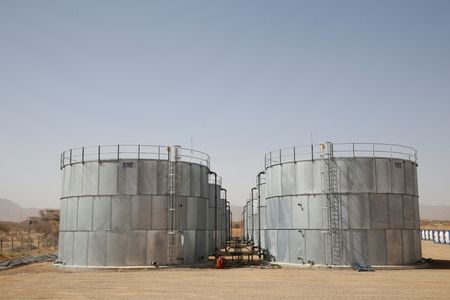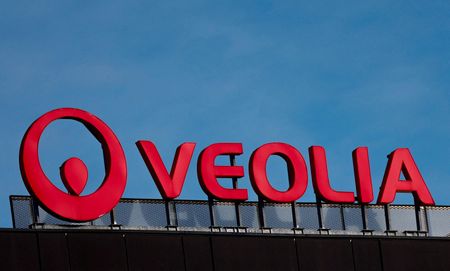By Ankita Bora and Yadarisa Shabong
(Reuters) -Tullow Oil warned on Friday that 2025 production will be at the lower end of its forecast as it races to refinance its capital amid mounting debt and overdue payments from the Ghanaian government, sending its shares to a record low.
Despite recent asset sales and progress in Ghana, natural production decline and delayed government payments are pressuring cash flow, making refinancing crucial to fix its debt-laden balance sheet.
The West Africa-focussed oil producer expects 2025 output at the lower of its 40,000-45,000 barrels of oil equivalent per day (boepd) range, while next year’s output could fall to 34,000-42,000 boepd as it grapples with natural declines in its wells in Ghana.
SHARES FALL AS MUCH AS 35%
Shares in the company dropped as much as 35% to 5.55 pence, implying a market value of about 82 million pounds. Tullow expects net debt of about $1.2 billion this year, up from its earlier forecast of $1.1 billion.
“Our near-term priority remains to put Tullow on a long-term sustainable financial footing,” CEO Ian Perks in a statement. “To achieve this, we are focused on maximising operational efficiency in Ghana, cost optimisation, and refinancing the Group’s capital structure.”
The group’s combined credit risk stood at 1, according to LSEG data, implying that Tullow is highly likely to default on its debt in the next one year.
Tullow is in talks with bondholders, commodity traders and other funding sources to refinance its capital ahead of its May 2026 bond maturity, but said it was also exploring alternative options with some creditors including to “amend and extend” exercise given risks around its business performance and market conditions.
Tullow maintained its 2025 free cash flow guidance at about $300 million, which assumes recovery of roughly $100 million in gas receivables still owed by the Government of Ghana.
“We expect two key catalysts to unlock upside over the coming months, which include refinancing the company’s 2026 bonds, and settling its outstanding tax disputes,” Peel Hunt analyst Sam Wahab said in a note.
(Reporting by Ankita Bora and Yadarisa Shabong in Bengaluru; Editing by Sonia Cheema and Conor Humphries)










